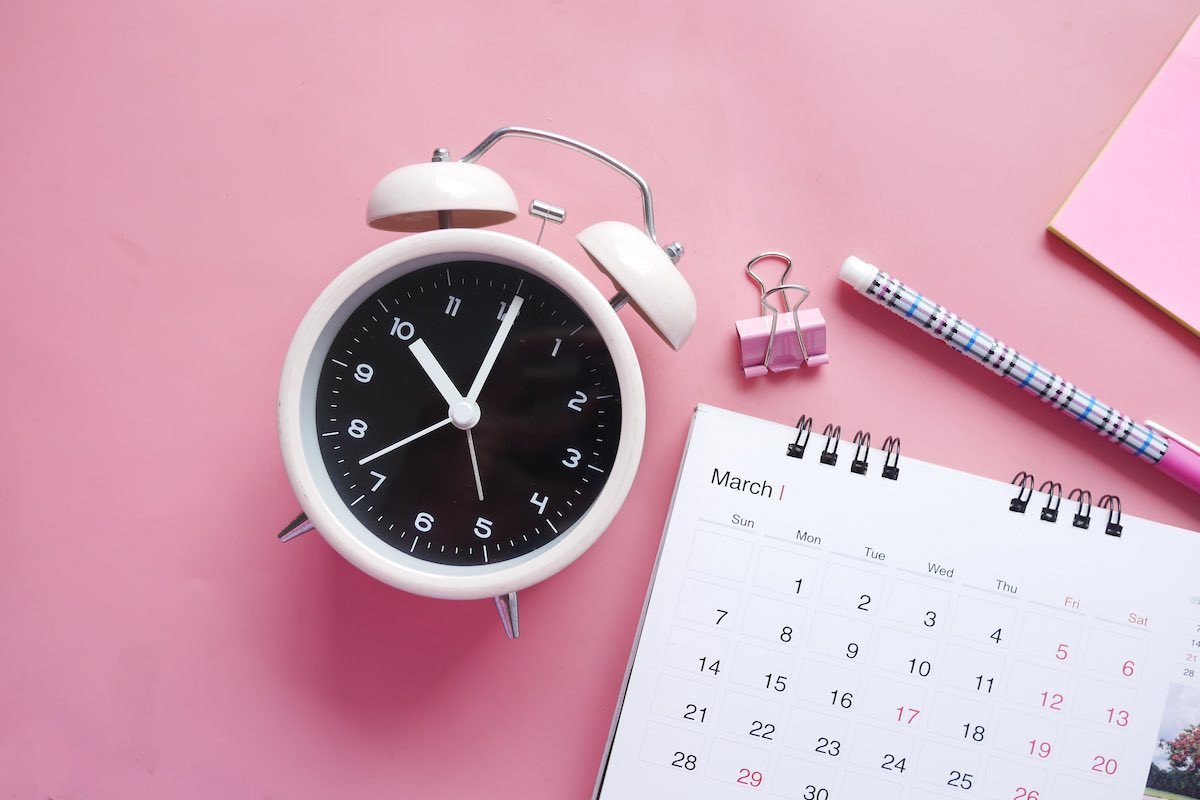More times than I can count, I’ve read articles on student loan debt.
I actually laughed when they say the average student leaves college with around $28,000 in debt. Why do I find this funny? Because for me, it was $96,000 of student loan debt.
It was the fall of 2013. I had a bachelor’s degree in one hand, a master's degree in the other, and the weight of almost $100K bearing down on my shoulders. Hence the laughter. I had three times the national average.
Where were the articles about people like me? Nowhere to be found.
The Beginning of My Debt Story
During college, I didn’t even know what lenders I had taken out loans through. My mom told me that they’d let me know once I graduated and I didn’t have to pay them yet, so it was a problem I’d deal with later.
Then later came, along with the bills, and the panic. I attended a state school for five years, worked a part-time job for most of that time, and still managed to accumulate $84K in student loans.
Once the accrued interest hit, I was looking at around $96K in debt. My entire future was ahead of me, but I already felt ten steps behind.
The Emotional Toll Debt Takes
Emotionally coping with debt has been a struggle and is something I’m constantly working on.
Point blank, it sucks. There’s no point in sugar-coating it.
It really, really, sucks. As much as I’d like to throw myself a pity party on the regular, I know that won’t pay the bills. But trust me when I say I’ve felt every emotion under the sun when it comes to living with and
paying off debt.
Most people aren’t the success stories you read about online. Most people are people just like me and you are trying to
figure it out as they go.
While I’d like to be giving you advice from the other side six years later, I’m not there yet. I’m still in the messy middle with $45K left to go.
I’ve learned a lot during the past six years of my debt journey, and everyone’s journey is unique. So, before I share what’s worked for me, here are a few things you should know about my situation:
- I’ve been working full-time since graduation, during which my salary has ranged from $41K to $70K. Making a career change two years out of school has caused my compensation to fluctuate up and down.
- I’m married. While you might say my husband can help me out, he’s in the same financial boat as me. He graduated with a master’s degree and almost $100K in debt. We’ve agreed our student loan burdens are our own to bear for the time being as we both try to get a leg to stand on.
- We own the home that we’ve lived in the past four years. We made the decision to buy because, at the time, a mortgage was cheaper than rent in our area. While we’re saving money that way, there are still costs that pop up that you can’t avoid.
- Throughout this journey, I’ve accumulated a good amount of credit card debt. When what you bring home barely covers your loans, it happens. Credit card debt also sucks, but what’s done is done. I’m paying that off as well, but it’s above and beyond my starting $96K loan balance.
Here is what I’ve learned about coping with debt, both financially and emotionally, as someone who’s currently living it.
Face It Head On
Debt is scary. When I first graduated, I had no idea how much debt I was in, and when I was in school, I was more concerned about my latest assignment or what party was happening that weekend and not what it was costing me.
But as daunting as it may be, you need to
face your debt head-on. Log into your accounts online, write down your balances and payments, or better yet, make a spreadsheet.
Take the time to understand where you stand. Avoiding your debt doesn’t make it go away and it’s easier to manage once you know what you’re dealing with.
Define Your Goals and Priorities
Your goals and priorities are going to shift depending on what season of life you’re in.
Do you want to get married or start a family? Awesome.
Get clear on what your main objectives are right now. They may change in a few years or even a few months, but we all need a place to start. Laying out
what your goals are will help you get on track to achieving them.
When I first started my career, my focus was to just make ends meet. I was making $44,000 a year, trying to pay rent, bills, a car payment, and make my minimum payments on my loans of just over $1,000 (yes, that was, and still is, my minimum monthly payment).
It wasn’t until I received a few raises and bonuses that I could even consider paying extra on my loans. That’s when I started to get serious about lowering my balances.
My priorities shifted when I got engaged and was
planning a wedding. They shifted again once I was married and wanted to change jobs, which meant a huge pay cut.
Life is happening around us while we’re paying down debt, so make sure your priorities are working for you in whatever stage of life you’re in.
Live Within Your Means, but Know It’s Okay to Buy the Coffee
This may seem blatantly obvious, but it’s the best place to start. I’ve seen recent grads living a lavish lifestyle they clearly can’t afford while swimming in debt.
If material things and travel are your priorities right now, that’s cool. But know that buying a new pair of boots won’t get you out of debt any sooner.
It’s important to be honest with yourself about what you can and can’t afford. Do you really need something, or do you just want it? Nine times out of ten, it’s a "nice to have," not a "need to have."
That being said, throughout my years, I’ve consistently heard the same piece of advice. Don’t spend your money buying coffee. Use it to pay down your loans. While I agree being frugal is smart when you’re trying to become debt-free, you also need to
live your life.
If you want the latte, buy the latte. It won’t make or break your progress. If you hit up Starbucks every day, that’s definitely going to add up. Think $5 a day, times five days a week, times 52 weeks. That’s $1,300 a year. Yes, that’s a lot to spend on coffee.
But if usually make your coffee at home and you want to treat yourself to a fancy latte, buy the damn latte.
Pay More Than the Minimum
Paging Captain Obvious. The quickest way to get out of debt sooner is to pay more than your minimum payment. Doing so will decrease your principal balance faster, therefore lowering your total balance and interest. It doesn’t matter if it’s $10 or $100, anything helps.
A few tricks that have worked for me:
- Round up your minimum payment. If your minimum is $243.19, round it up to $250. I promise you won’t miss that $6.81.
- Treat your bonuses, tax refunds, whatever extra money you’re getting in like you never got it. You didn’t have the money before, so you won’t miss it, and it could save you multiple payments down the road.
- Start a side hustle.
Debt Avalanche vs. Debt Snowball: Just Pick One and Stick to It
If you’ve Googled anything about paying off debt, it’s likely that you’ve heard of the debt avalanche and debt snowball methods.
At a high level, debt avalanche is paying the minimum on your loans and using any remaining money to pay on the debt with the highest interest rate.
Debt snowball is paying the minimum on your loans and using the remaining money to pay on the debt with the lowest balance. Everyone has their opinion on which works better, but I’ve found the important thing is to pick one method and stick to it.
I chose the debt snowball method. I like the gratification of paying off my smaller loans quicker and then freeing up that money to make a larger payment on my next smallest loan.
Others like to pay off the highest interest rate loan first, even though it may take longer to pay off that first loan because they know it’ll save them money in interest payments in the long run. In my opinion, there is no right or wrong. As long as you’re paying down your debt, it’s a win.
Consider Refinancing
I didn’t even consider refinancing until about a year ago. I got emails from places like Sofi and Credible, but I never gave it a second thought.
I had looked into it when I first got out of school and the numbers just didn’t make sense at the time. Until one day, an email sparked my curiosity, and I decided to check my rate again. Honestly, I wish I had done it sooner.
By consolidating three of my private loans into one and raising my minimum payment by $276 a month, I lowered the remaining term length on my loans from 10 years to 5 years, while lowering my interest rate significantly.
Before refinancing, only around $150 of my $442 payment was hitting the principal. Now, around $560 of my $718 payment goes to my principal balance. Refinancing may not be for everyone, but do your research before you decide.
Talk with Your Lenders About Ways to Reduce Your Interest Rate
This may seem like an unlikely option but hear me out.
I’ve held loans through multiple lenders who offer a .25% rate discount if you set up automatic payments. It’s a small change on your end that will add up to savings down the road. Check out your lender’s website to explore what discounts may be available to you.
Don’t Put Your Life on Hold
A priority of mine since college has been to
pay off my debt. Sometimes that meant paying the minimum and sometimes that meant paying a lot more.
But throughout the past six years, I’ve also learned you can’t put your life on hold until you are debt-free.
Debt can be a huge black cloud of frustration and anger when you’re paying $1,000 a month what could be spent saving for a down payment on a house or used to buy a plane ticket to Europe. But obsessing about it won’t change the situation or make you any happier.
If you want to get married, you’ll find a way to make it work even with student loans. I promise. My husband and I graduated with a total of around $190,000 in debt, but during that time, we bought a house, got married, adopted two dogs, and are expecting our first child.
If we waited to pay off all our loans to start our life together, we’d still be waiting. There’s no perfect time to do it, but if you want it, you’ll find a way to make it work. Figure out what’s important to you and unapologetically go for it.
Be Okay Living With Debt
It’s there, and if you’re being honest with yourself, it’s not going anywhere in the foreseeable future. I’m not trying to be a Debbie Downer; I’m being realistic. My $96,000 has not disappeared overnight. It hasn’t disappeared in six years.
Right now, I’m sitting with about $45,000 in student loan debt that I’m planning to have paid off in the next three and a half years.
Three and a half years seems short in the grand scheme of the nine and a half years it will end up taking me to be debt-free, but it also means that I’m going to wake up tomorrow with debt and the day after and next year and the year after that. It’s a bitter pill to swallow, but it’s the truth. So, get comfortable living in that discomfort.
Your debt doesn’t define you.
You may be broke and feel behind in life, but you won’t feel better until you accept it. Trust me, I know from experience.
In the grand scheme of things, your student loan debt is a small piece of your life, and it means you walked away from college with a degree (or two!). No one can take that away from you.
Without taking on debt to get an education, I wouldn’t have learned that accounting wasn’t my calling, I wouldn’t have moved across the country to a city I love, I may not have discovered my passion for writing and communications, and without taking on student loan debt to go to college, I wouldn’t have met my husband. The means to get there may be less than ideal, but the end result is great.
It’s your life and it’s what you make it, with or without debt.











